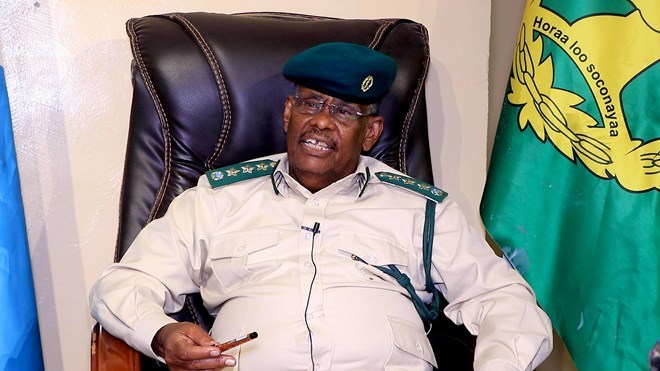
Thursday April 10, 2025

Mogadishu (HOL) — Somalia’s Custodial Corps has arrested several of its own soldiers after they fled the frontlines of an ongoing offensive against Al-Shabaab and attempted to sell their government-issued rifles, the force’s commander confirmed Thursday.
Brig. Gen. Mahad Abdirahman Aden, known as Commander Shub, said that those who deserted combat positions in the Middle Shabelle region and returned to Mogadishu were apprehended. Some had smuggled their weapons into the capital to sell them, while others abandoned their rifles at the front before fleeing.
“Those who escaped the frontlines were not left to roam the streets of Mogadishu. We tracked them down,” General Mahad said. “The ones who tried to sell their rifles are in detention. Weapons left behind were recovered and sent back to the front.”
The Custodial Corps, a branch of Somalia’s security apparatus typically tasked with prison management, was recently deployed to the frontlines as part of the federal government’s campaign to dislodge Al-Shabaab from its remaining strongholds. In recent weeks, units stationed in Mogadishu were transferred to active combat zones in Middle Shabelle, an area with increased military activity.
The commander praised the commitment of the majority of Custodial Corps personnel who have remained at their posts and continued fighting, stating that the actions of a few deserters should not overshadow the discipline and courage shown by others.
“I commend those serving on the frontlines for their determination in the face of Al-Shabaab,” he said.
The Somali government, backed by local militias and international partners, has intensified operations against Al-Shabaab across central and southern Somalia. The militant group, which has waged an insurgency for over 15 years, still controls portions of rural territory but has lost significant ground in recent offensives.
Officials say the crackdown on desertion within the security forces is part of broader efforts to maintain military discipline and bolster morale during a critical phase of the conflict.